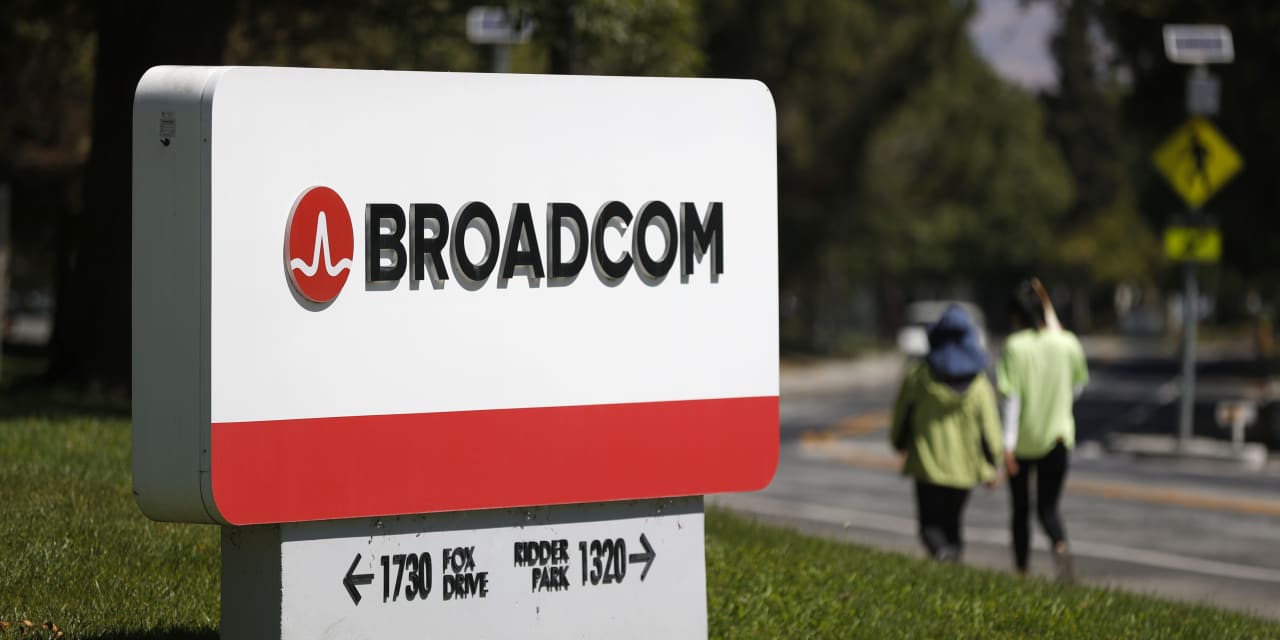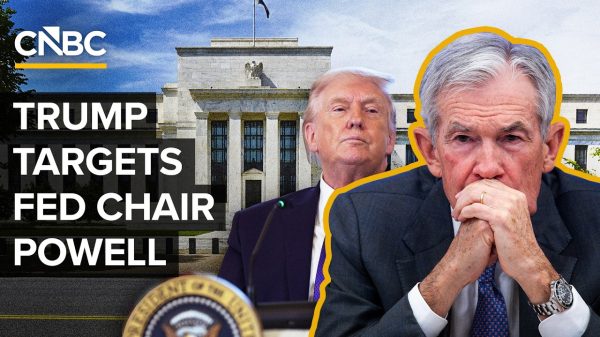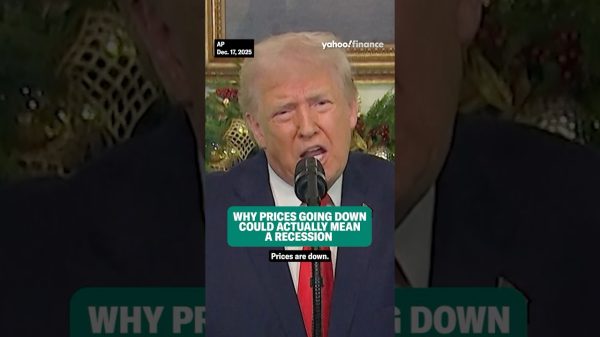There had been concern that the cash-and-stock deal that Barron’s estimates is valued at $83 billion might die without Chinese approval because of trade and economic tensions between the U.S. and China.
It turns out the wait for Chinese approval of the deal was worth it. The vast majority of
VMware
shareholders (ticker: VMW) will get a windfall thanks to the run-up in
Broadcom stock
(AVGO) since the deal was announced. Broadcom is a chip and hardware company; VMware produces software.
The Tuesday approval from China’s State Administration for Market Regulation (SAMR) was the final regulatory OK needed for the transaction.
Wall Street assumed that Broadcom, which does significant business in China, wouldn’t close on the deal without China’s assent. China’s regulatory process is viewed by many American investors as opaque and unpredictable. There also is a perceived political overlay.
VMware investors have been in a virtually unprecedented limbo without access to their stock since a merger consideration election period ended on Oct. 23, a period of more than four weeks.
The two companies had planned to close on the deal on Oct. 30. On that date, they released a statement that said they expected to close the deal “soon,” before the merger termination date on Nov. 26. The deal will close just under the wire.
VMware stock fell on the approval news, declining 5% to end at $142.48 on Tuesday. Broadcom was off 1.5% to $981.20.
The VMware drop reflected odd dynamics in the stock. Recent buyers of VMware, and any since the merger consideration election period ended on Oct. 23, stand to receive the cash consideration of $142.50 a share.
However, some investors were buying VMware shares betting that if the merger was delayed past the termination date on Nov. 26, the election period might be reopened, enabling investors to get partly paid in the more valuable stock election.
About 96% of VMware holders elected to receive stock in the merger election period and they will get a package of stock and cash worth about $197 a share, Barron’s estimates.
VMware holders had the choice of electing to receive 0.252 shares of Broadcom for each VMware share or $142.50 a share in cash. With the run-up in Broadcom stock since the deal announcement, the stock election was worth much more. Broadcom stock has been on a roll, rising more than 10% this month and over 75% since the deal was announced in May 2022. Broadcom, however, is capping the stock consideration at 50% of the VMware shares.
This means that VMware holders who elect to receive stock will be prorated and get 52% stock and 48% cash, according to the Oct. 30 press release.
If the deal had died, VMware stock could have dropped into the $120 to $130 range.
The deal was popular with merger arbitragers due to a wide deal spread for much of the year due to the concerns about Chinese regulatory approval. Arbs bought VMware and sold Broadcom short to lock in a spread that topped 10% for much of 2023.
“This approval is good for the broader global merger and acquisition industry,” Roy Behren, the co-manager of the Merger fund, wrote to Barron’s in an email.
“Although the Chinese regulatory process is oftentimes opaque, we have seen many recent deals, including in the technology sector, approved by SAMR after a thorough review. Most of the large acquisitions we have seen recently, both within and outside the US, conduct sufficient business in China to require antitrust approval by SAMR, their regulatory agency,” Behren said.
Behren’s firm, Westchester Capital, held about $230 million of VMware and it was one of the larger positions in the Merger Fund on Sept. 30.
There was concern that the Broadcom-VMware deal would meet the same fate as
Intel’s
(INTC) deal to buy
Tower Semiconductor
(TSEM), which was scrapped in the summer after it didn’t get Chinese antitrust approval.
If China disapproves of a merger, it generally refuses to approve rather than outright rejecting it. But the lack of approval is tantamount to rejection.
The Broadcom-VMware situation highlights the growing China risk in the business. Investors need to consider the relationship between the U.S. and China, alongside traditional regulatory considerations. The upside is that spreads—the difference between where is a stock is trading and the deal price—will be wider, creating more opportunity for profits.
From an antitrust perspective, the deal didn’t raise any major issues given a lack of overlap between the two companies. In approving the deal, Chinese regulators attached certain conditions including prohibiting the tying the sale of Broadcom and VMware products without justification. Broadcom appeared to have known those conditions in advance since it put out an announcement that the deal would close Wednesday quickly after SAMR approval.
The Financial Times had reported that the delay in Chinese approval was political. Investors were hoping that the visit of China’s leader to the U.S. last week might be a catalyst and lead to Chinese approval of the deal. It isn’t clear whether Xi’s visit played any role in the decision.
Broadcom CEO Hock Tan was one of many U.S. CEOs including
Apple
CEO Tim Cook who attended a dinner with Xi last week in San Francisco, according to media reports. The deal’s approval represents a coup for Tan who had said he expected the OK.
Write to Andrew Bary at [email protected]
Read the full article here











